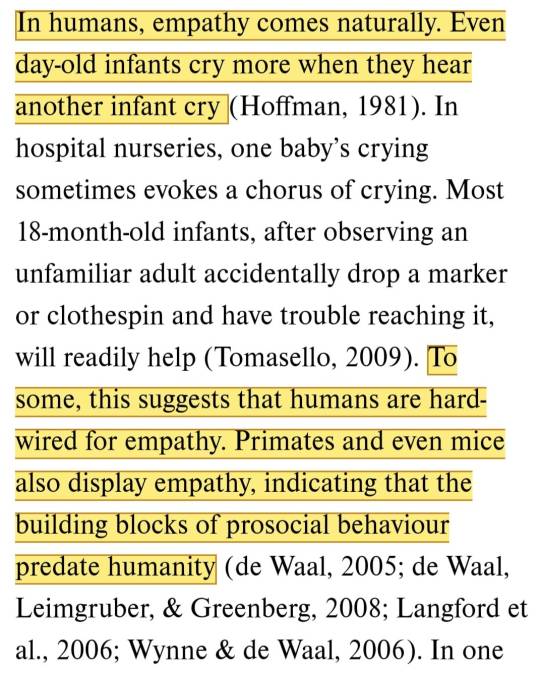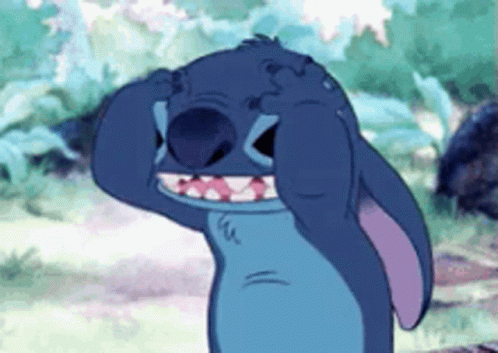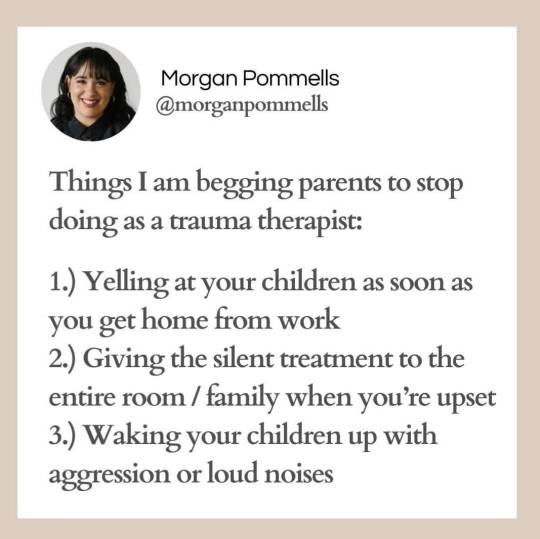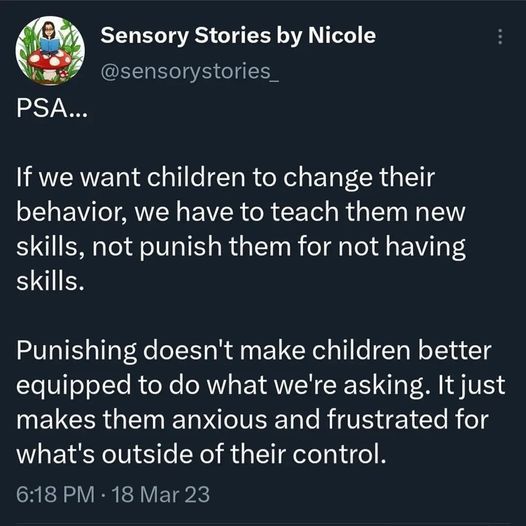***Wren (she/her) - I'm a writer, educator, and caregiver*** | early childhood educator | studied ancient history and classical studies at university | traditionally and independently published writer | former CNA/home health aid (currently do independent caregiving) | formerly taught English/writing to teens
Don't wanna be here? Send us removal request.
Text
When everyone seems to have a damaged, unhappy "inner child," it is time to examine and change the treatment of children on a massive scale.
13K notes
·
View notes
Text
THE MAGIC OF CHILDREN'S BOOK
Children's books are more than just stories; they are portals to imagination, empathy, and learning. These carefully crafted narratives, often adorned with vibrant illustrations, play a pivotal role in shaping young minds, fostering a love of reading, and cultivating essential life skills.
The Evolution of Children's Literature
The world of children's literature has undergone a remarkable transformation. From traditional fairy tales to contemporary explorations of diversity and social issues, books for young readers have evolved to reflect the complexities of the world around us. Early pioneers like Beatrix Potter and Dr. Seuss laid the foundation for a genre that would become increasingly sophisticated and inclusive.
Early Influences:
Fairy Tales: These timeless stories, often featuring magical elements and moral lessons, have captivated children for centuries. Authors like the Brothers Grimm and Hans Christian Andersen contributed to this rich tradition.
Bildungsroman: While primarily associated with adult literature, the coming-of-age narrative has also found its place in children's books, helping young readers navigate the challenges of growing up.
Picture Books: Combining text and images. Picture books have become a cornerstone of early childhood literacy, introducing children to the world of storytelling and visual literacy.
Modern Trends:
Diversity and Inclusion: Children's literature is increasingly reflecting the diversity of the world, with stories featuring characters from various backgrounds, cultures, and abilities.
Social and Emotional Learning: Books are now addressing important social and emotional issues, such as bullying, friendship, loss, and resilience, providing children with tools to understand and cope with their emotions.
Interactive Elements: Incorporating interactive elements like flaps, pop-ups, and augmented reality, modern children's books offer engaging and multisensory experiences.
Graphic Novels: This format has gained popularity, offering a visually compelling way to tell stories, attracting a wider range of readers.
The Impact of Children's Books
Children's books have a profound impact on young minds in several ways:
Language Development: Exposure to rich and varied language through books helps children expand their vocabulary and develop strong language skills.
Cognitive Development: Engaging with stories stimulates critical thinking, problem-solving, and imagination.
Emotional Development: Children learn to empathize with characters, understand their own emotions, and develop emotional intelligence.
Social Development: Books can help children learn about different cultures, perspectives, and social interactions.
Literacy Development: Regular exposure to books fosters a love of reading, which is essential for academic success and lifelong learning.
The Role of Illustrations
Illustrations are an integral part of children's books. They complement the text, providing visual cues and enhancing the storytelling experience. Effective illustrations can:
Clarify Text: Images can help children understand complex concepts or abstract ideas.
Create Atmosphere: Illustrations contribute to the mood and tone of the story.
Develop Characters: Visual representations of characters can deepen readers' connections with them.
Stimulate Imagination: Open-ended illustrations encourage children to create their own interpretations.
Challenges and Controversies
While children's books have the power to inspire and educate, they are not without their challenges and controversies. Issues such as censorship, age appropriateness, and the representation of sensitive topics often arise. It is essential to foster open dialogue about these issues to ensure that children's books continue to be a positive force in their lives.
The Future of Children's Books
The future of children's literature is bright. With advancements in technology and a growing emphasis on diversity and inclusivity, we can expect to see even more innovative and impactful books for young readers. As the world continues to evolve, children's books will undoubtedly play a vital role in shaping the minds of future generations.
#children's books#illustration#author#writers#education#parenting#children's literature#literature#stories
2 notes
·
View notes
Text

There’s a quote from Bert where he says he‘s “known big bird since he was a little bird” and the thought of it makes my heart cry so here’s that
211K notes
·
View notes
Text
man the crazy thing about babies is that like, some people would think that reading a baby a book about farm animals is teaching them about farm animals, but really it’s teaching them about the concept of a book and how there’s new information on each page of a single object, but really, beyond that, it’s teaching them how language works, and beyond that it’s really actually teaching them about human interaction, and really really it’s them learning about existing in a three-dimensional space and how they can navigate that space, but actually, above all it is teaching them that mama loves them.
222K notes
·
View notes
Text
I watch gentle parenting and Montessori teaching videos on TikTok because I love children and they're so wholesome. But fully half the comments are always like "I'm not doing this, I can't stand that whining", "I don't have the patience for this", "I'd ask the hospital for a refund lol", and my favourite, "Respectfully, this is why I don't want kids".
It is not actually fucking respectful to get on a video about being kind to children just to say "yeah no fuck that". You don't have to be a parent, but sometimes you're going to have to deal with children because you share a society with them, and they will be loud and annoying because they are children. You are still morally, ethically and humanly obligated to interact kindly with them and object to caregivers who react punitively. You are obligated to try and empathize with the child because you are a whole adult and they are new to planet earth. Of course they're annoying and irritating, even I have the urge to snap when I first hear those tantrums. I watch these videos to learn to deal with that irritation and look beyond it to empathize with the overwhelmed child. It's a training in compassion and patience for those with less capacity and agency than you. If you don't want to use this controlled example that you can scroll away from to learn that then why are you even commenting?
And they're still better than the people who do already have kids and are planning to have them but can't stop announcing that they prefer to power trip and visit pain and humiliation on humans in their smallest, most vulnerable form who depend on them to survive.
Maybe if these people's own parents had bothered to teach them how to deal with their own shit instead of behaviour modelling assholery they would also be functional adult humans with more patience than a toddler by now.
174 notes
·
View notes
Text
some loser: humans are innately selfish creatures
my psych book:

112K notes
·
View notes
Text
I see a lot of posts saying "teach boys about consent".
While that is true, a lot of parents will do that and fail to see how their own actions are the problem.
If you've spanked him, he's less likely to understand consent.
If you've forced him to sit on Santa's lap, he's less likely to understand consent.
If you've forced him to give hugs and kisses to family members, he's less likely to understand consent.
If you've grabbed him in order to force him to sit still, he's less likely to understand consent.
If you've labeled him as "too sensitive" for not wanting to be touched, he's less likely to understand consent.
If you've assumed he's okay with something because he technically allowed it even though he felt pressured, he's less likely to understand consent.
If you're only going to criticize his actions but not your own, it won't work.
#this is so beautiful#and important#conscious parenting#parenting#parenting advice#consent#teaching consent
85K notes
·
View notes
Text
I just wanted to say that it's not too late to learn something you've always wanted to, or relearn something you really struggled with in school.
I have dyscalculia. It's a math learning disability that most people - including teachers and clinicians - don't really know about. I was a straight A student - except when it came to math, which I just couldn't understand no matter how hard I tried. I went through school thinking I was a failure, I was stupid, and I didn't receive the help I truly needed because neither myself nor my teachers knew I had this learning disability. I was diagnosed with dyscalculia after I graduated from school and everything just made sense. I was a little bitter I didn't find out when I most needed it though. I thought it was too late for the longest time and I'd just never understand math. It was a lost cause at that point.
I am almost 30 years old. This week I just purchased a seventh grade math workbook. It still doesn't make much sense to me but I'm slowly making my way through it.
It's not too late for me, and it's not too late for you either.
#dyscalculia#dyscalculic awareness#adhd#learning disabilities#it's not too late#my post#my posts#thekindermouse#text post#math#struggling with math#student#learning#education#dyscalculia awareness
12 notes
·
View notes
Text
Honestly the more I see posts and pictures from the era of my childhood, the more it makes me excited to watch my daughters experience the same kind of joy and wonderment I did then.
2 notes
·
View notes
Text
advice i think we should tell children is that when adults say stuff like ‘now that i’m an adult i get really excited about stuff like coffee tables and bathrooms and rugs etc’ they don’t mean ‘and now i don’t care about blorbo and squimbus from my childhood tv shows anymore’ bc your average adult still loves all the same pop culture stuff they always did; they just have a greater appreciation for the mundane as well. growing up just means you can enjoy life twice as much now. you can get really excited about a new stuffed animal AND about a new kitchen sponge. peace and love
151K notes
·
View notes
Text
There's got to be more like-minded educators and parents out there.

Please reblog or like this if you work in and post about early childhood (development / education /etc) or are a parent who is one or more of the following:
pro children's rights
a person of color
actually autistic
pro mental health awareness and action
for the right to an education for every single child regardless of age, race, gender, heritage, ethnicity, and more
comfortable shit posting stuff those without kids or maybe those who don't work with kids wouldn't understand
DNI if you are: a terf, nsfw blog, christianity apologist (spare the rod spoil the child), montessori is king I learned ab it via socail media teehe, mommy-fluencer, post your children or children you work with online, pro spanking, or think ABA therapy is acceptable
37 notes
·
View notes
Text




All amazing points and so important to take in. I think I have done a couple of these, but not habitually or intensely. But it's good awareness for me.
78K notes
·
View notes







